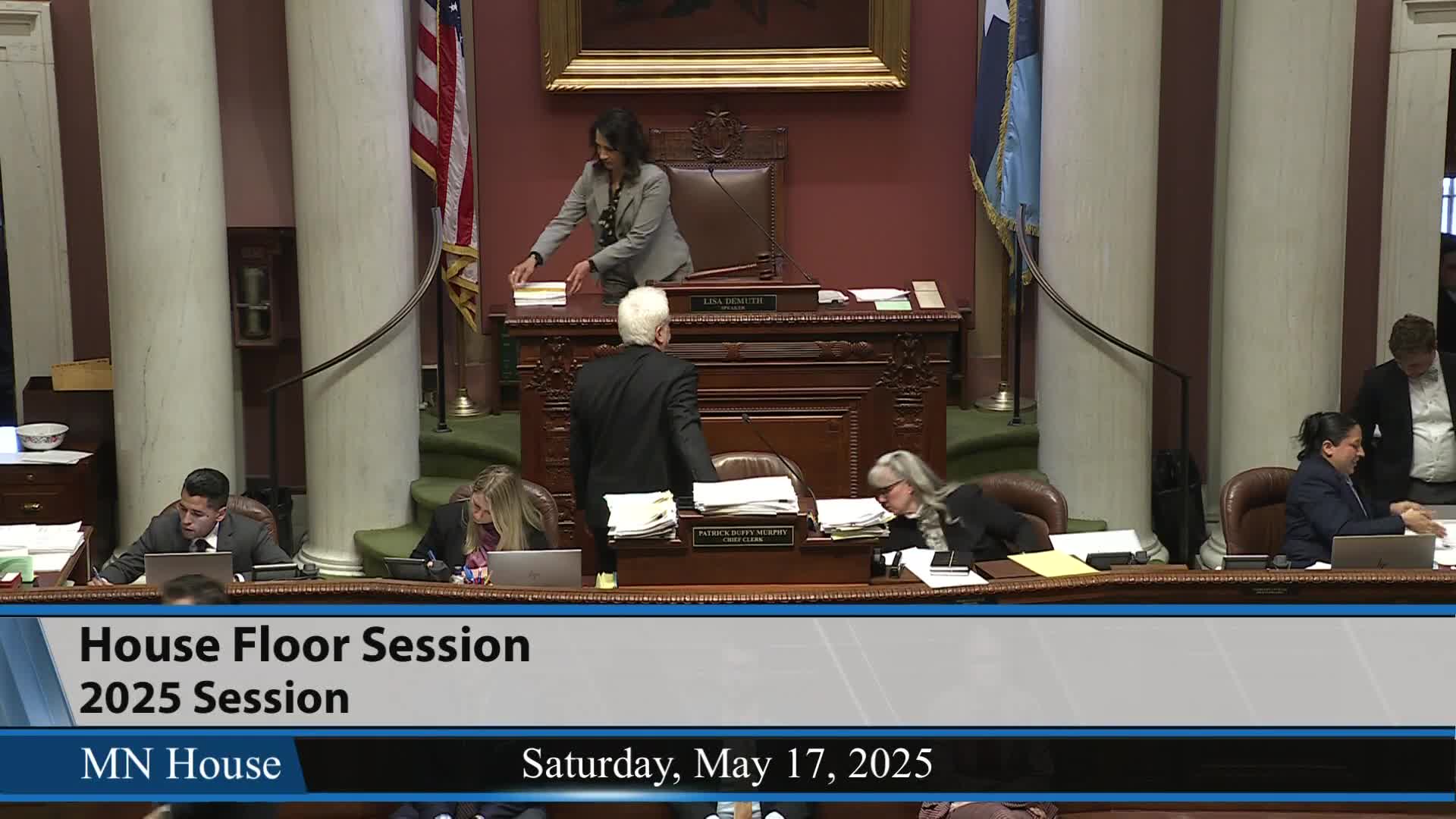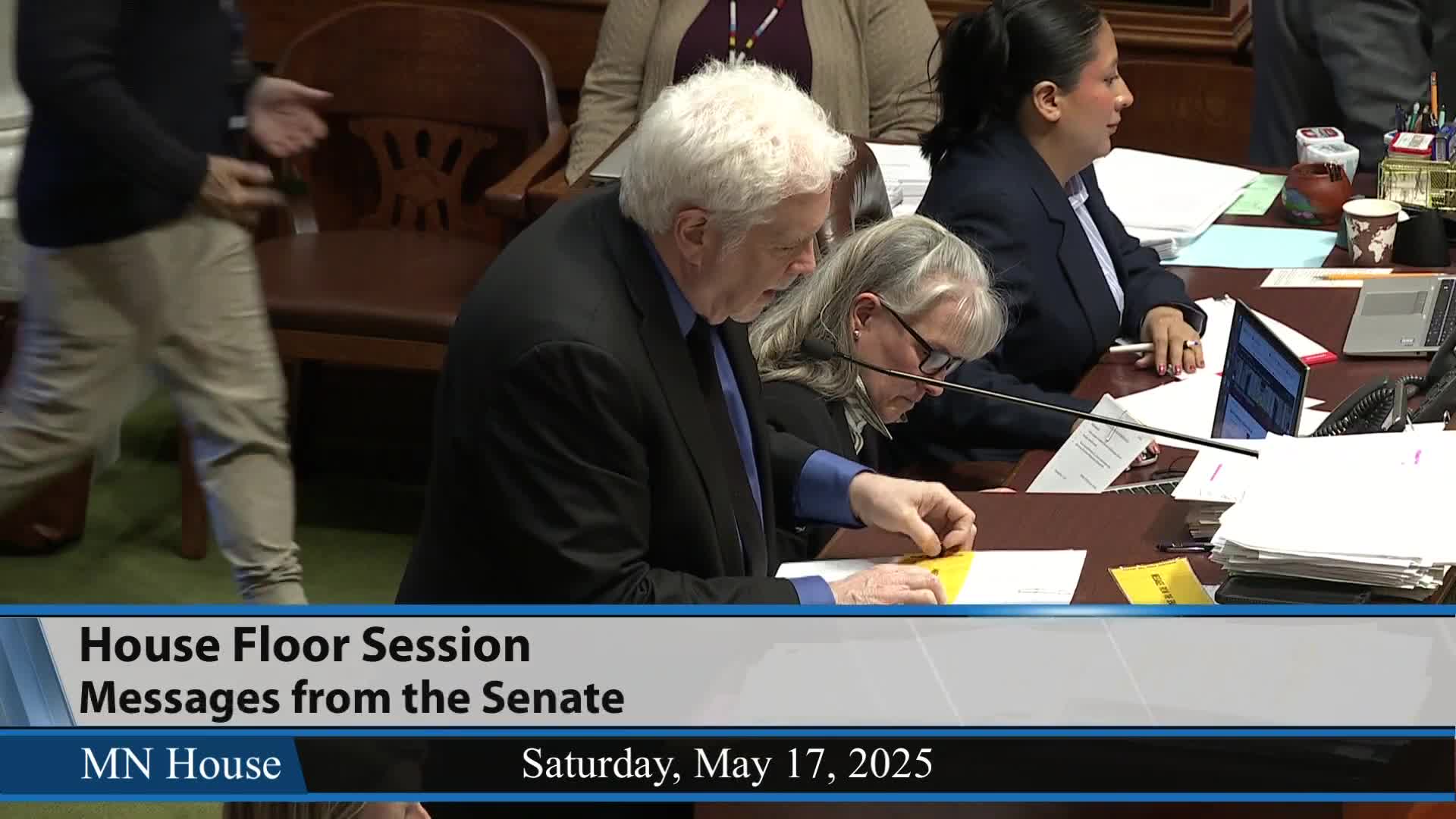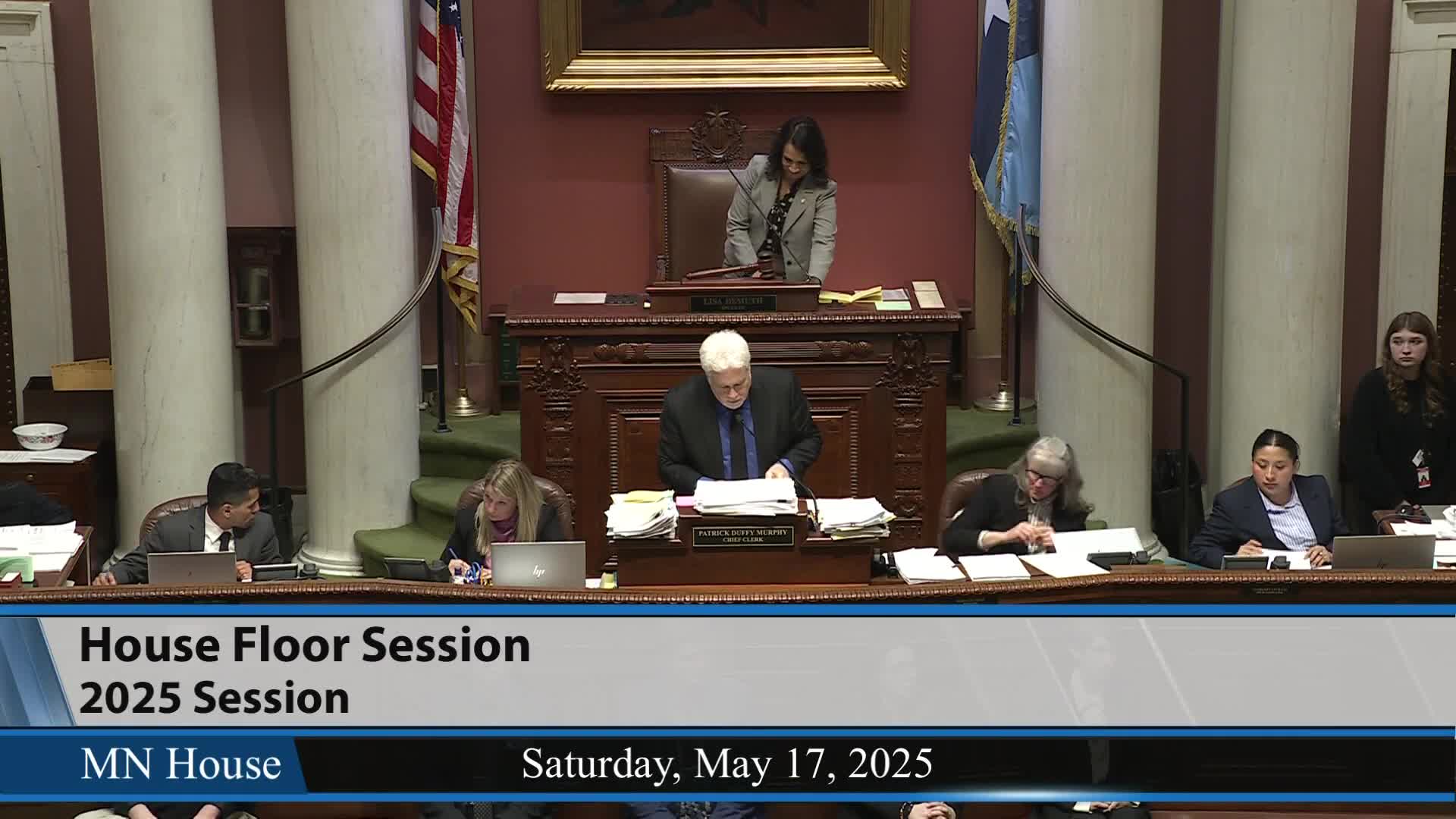Article not found
This article is no longer available. But don't worry—we've gathered other articles that discuss the same topic.

House adopts conference report on veterans budget, adding funding for veterans homes and homelessness programs

House concurs with Senate on bill clarifying AED signage; bill repassed unanimously

